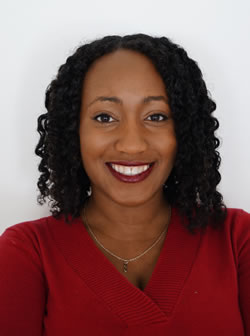|
It happens too often that beginning fiction writers fail to give their characters jobs or occupations. Weak stories by beginning writers often feature adults who are wealthy without any discernible means of income or who perform the indiscernibly ambiguous task of "work." Characters are described as working each day, but the reader is never told what they do or how their daily jobs affect them or their interactions with others. Characters do not earn money; they simply have it. There are no bills, no expenses, and, of course, no financial struggles.
In many cases, omitting character occupation comprises a missed opportunity for further character development, plot construction and inclusion of conflict. It renders the character vague, the way failing to denote place in a story makes it seem to occur nowhere. Occupation may serve as an anchoring mechanism in fiction, especially when one's initial conception of a story is vague. It provides a foundation upon which a story can be built as it calls for specificity and demands concrete details. Determining what one's character "does" for a living can help to create a round character, a full and complex human, while affording the writer a chance to explore how characters' occupations shed light on the ways in which they respond to conflict and achieve resolution as well as consider the obstacles or circumstances that might exclude them from certain professions, all of which can stimulate stalled writing.
Here then are some helpful questions to consider when deciding what your characters do for a living:
- What is the backstory of how he or she came to obtain the job?
Was it accidental or deliberate? Earned or lucked into? Was this your character's dream job, or the only one left after a bunch of rejections? How well does it pay? What sort of training was necessary for obtaining this job? Did someone pull strings for him or her?
- What is his or her attitude about the job?
Does he or she see him- or herself as providing a key or important service, or is he or she resentful and unfulfilled? Has your character received deserved and timely promotions and raises or has she been held back? What are your character's ambitions? Does he or she wish to move up? How long will that take? Is the path of ascent clear? What gets in the way?
- Who is your character when at work?
Is he or she a brownnoser? A slacker? The water cooler gossip?
- Who is your character when not at work?
Is there a separation between your character's work and home life? Have your characters become their jobs or have their jobs become them? Where does your character fit in with the rest of his or her family? Is he or she the engineer in a family of actors, or a dancer in a family of physicists? Do his or her loved ones, friends, and acquaintances respect his or her occupation? Do they understand it? Do they mock it?
- How does race, class, gender, religious affiliation, sexual orientation, citizenship, or disability status affect your character's job prospects?
Does your character encounter structural forms of discrimination? Is he or she ever the victim of sexism, racism, ageism, homophobia, sexual harassment? What is the gender makeup of his or her profession both nationally and locally? What is the racial makeup? Does he or she work in a field where he or she is underrepresented? Does he or she see him- or herself as an insider or outsider at work?
- What are the reasons your adult character doesn't work?
Is he or she retired? A homemaker? A drifter? Homeless? Does lack of a visa or citizenship status force him or her to work under the table?
Certainly every single story will not call for characters with well-defined jobs. There are a great many stories in which occupation is never mentioned, but a deliberate omission of an unnecessary detail differs importantly from an omission which might weaken the overall integrity of the story. Think of Hulga, the character in Flannery O'Connor's "Good Country People" who resents that her disability (a weak heart) prevents her from using her PhD to leave home and become a professor. Or of Jude, in Toni Morrison's Sula, who marries Nel only once he is turned down for work on a construction project and seeks a new way to prove his masculinity. Or of Shoba, in Jhumpa Lahiri's "A Temporary Matter," whose job as a proofreader filters over into her personal life when she effectively corrects her life by finding the flaw (her husband) and editing it (him) out. Or Anders, the book critic protagonist in Tobias Wolff's "Bullet in the Brain,” who can't turn off his need to correct and critique, even when a gun is being trained on him and his silence is a matter of life or death. Many stories are enriched because of the specific tasks and occupations characters choose. Don't miss out on your riches.
|


